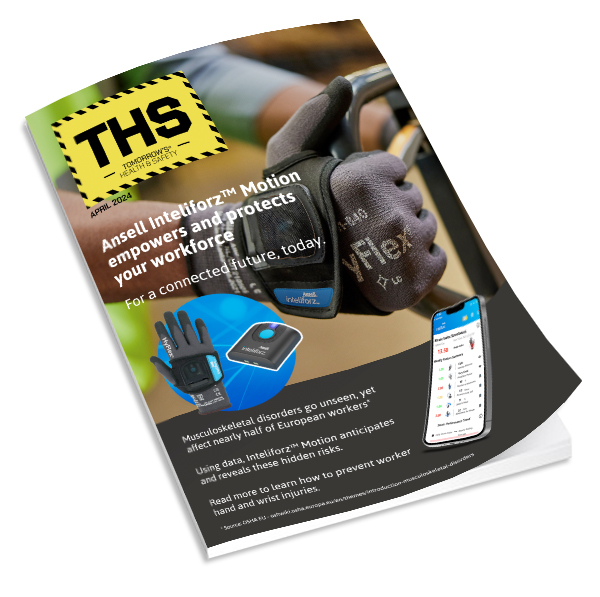You are here
- Home
- >
- UK Employers Fail to Adequately Support Brain Injury Sufferers
UK Employers Fail to Adequately Support Brain Injury Sufferers

Published on 06/11/2015
UK employers are ill-informed and under-equipped to support employees with brain injuries in the workplace, according to research by Hudgell Solicitors.
The Hull-based solicitors collected client feedback and carried out a survey to find out how brain injury sufferers felt when they returned to work. The findings highlighted a distinct lack of support for individuals returning to work after a brain injury.
The survey elicited responses such as “they don’t understand my injury or the nuances that come with it” and “I didn’t tell HR the full story because I don’t think they would have understood”. Respondents illustrated the support shortfall many brain injury sufferers are experiencing when attempting to regain independence and get back to work.
Hudgell Solicitors partnered with brain injury charity, Headway, to carry out the survey and found that in the last year there were 162,544 hospital admissions for head injuries, suggesting that the problem may be affecting a large amount of the working population.
Kent Pattinson, Senior Solicitor at Hudgell Solicitors, said: “There are strategies which employers ought to put in place to assist employees on their return to work following a brain injury.
“However, it is rare for employers to conduct occupational health and vocational assessments when clients return to work.”
Charlotte Sweeney, a Strategic Diversity and Inclusion Expert, suggested working closely with the employee to form an understanding of the unique nature of each injury.
She added: “Every case, every symptom and the impact on day-to-day life is different for everyone – the person experiencing the brain injury is the expert in their own situation and should be consulted at all times to find out what will work for them and what support or adaptations they will need now and in the future.”
Karl Turner, Labour MP for Hull, suggested a focus on phased schemes that allow employees to return to work at a gradual pace which suits their recovery. Karl commented: “This may include home visits from managers in which expectations should be discussed and what changes to the job role are necessary to allow a smooth transition.”
When asked about how businesses could better integrate sufferers in the workplace and help reduce feelings of isolation, Karl Turner said: “Workshops with all staff members to discuss mental and physical health issues to foster a better understanding of the practicalities that arise when returning to work.”
The Hull-based solicitors collected client feedback and carried out a survey to find out how brain injury sufferers felt when they returned to work. The findings highlighted a distinct lack of support for individuals returning to work after a brain injury.
The survey elicited responses such as “they don’t understand my injury or the nuances that come with it” and “I didn’t tell HR the full story because I don’t think they would have understood”. Respondents illustrated the support shortfall many brain injury sufferers are experiencing when attempting to regain independence and get back to work.
Hudgell Solicitors partnered with brain injury charity, Headway, to carry out the survey and found that in the last year there were 162,544 hospital admissions for head injuries, suggesting that the problem may be affecting a large amount of the working population.
Kent Pattinson, Senior Solicitor at Hudgell Solicitors, said: “There are strategies which employers ought to put in place to assist employees on their return to work following a brain injury.
“However, it is rare for employers to conduct occupational health and vocational assessments when clients return to work.”
Charlotte Sweeney, a Strategic Diversity and Inclusion Expert, suggested working closely with the employee to form an understanding of the unique nature of each injury.
She added: “Every case, every symptom and the impact on day-to-day life is different for everyone – the person experiencing the brain injury is the expert in their own situation and should be consulted at all times to find out what will work for them and what support or adaptations they will need now and in the future.”
Karl Turner, Labour MP for Hull, suggested a focus on phased schemes that allow employees to return to work at a gradual pace which suits their recovery. Karl commented: “This may include home visits from managers in which expectations should be discussed and what changes to the job role are necessary to allow a smooth transition.”
When asked about how businesses could better integrate sufferers in the workplace and help reduce feelings of isolation, Karl Turner said: “Workshops with all staff members to discuss mental and physical health issues to foster a better understanding of the practicalities that arise when returning to work.”
Categories
- CHAS AT SAFETY & HEALTH EXPO 2022
- Agriculture
- Asbestos
- Cleaning
- Compliance & Risk Assessment
- Conferences
- Construction
- Courts
- Culture & Behaviour
- Ear Protection
- Education
- Emergency Evacuations
- Events
- Eye Protection
- Feature
- Fire & Electrical Safety
- Floor Safety
- Gas Detection & Monitoring
- Hand/Arm Vibration
- Hazardous Substances
- Health & Safety News
- Health and Safety Executive
- Hospitals & Healthcare
- Human Factors & Ergonomics
- Hygiene
- In the Courts
- Legislation
- Lone Worker Protection
- Mental Health
- Noise Monitoring
- PPE
- Plant Machinery & Site Safety
- Products & Services
- Prosecutions
- Protective Clothing
- Protective Workwear
- Reports
- Respiratory
- Slips, Trips & Falls
- Standards
- Stress
- Technology
- Training & Development
- Transport & Logistics
- Webinars
- Wellbeing
- Whitepapers
- Work-related Diseases
- Working at height


















